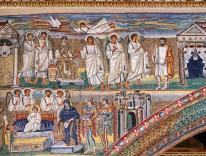
Early in his memoir, Peter Quinn shares what his mother told him and his siblings when they were growing up: “Wherever we went we should bring back a story.”
Quinn took his mother’s advice to heart, collecting and crafting stories from his native Bronx and the political backrooms and corporate boardrooms he later inhabited. A speechwriter for New York Govs. Hugh Carey and Mario Cuomo, he later did the same for executives at Time Inc. and, in between, authored the American Book Award–winning novel Banished Children of Eve: A Novel of Civil War New York. His memoir, which he started writing during the pandemic, is as much a celebration of his beloved borough as a recounting of his days penning important—and not-so-important—speeches for some of the twentieth century’s most influential politicians and power brokers.
In the memoir’s first section, Quinn concentrates on his childhood. He writes evocatively about the Bronx, specifically his native Parkchester neighborhood, a planned community of twelve thousand apartments and forty thousand tenants conceived, financed, and built by Metropolitan Life Insurance. “When I think back to my early childhood, most of all I remember brick. My mother pushed the baby carriage with [my twin brother] Tom and me through canyons of brick. Learning to walk, I held her hand and looked up at walls of brick.”
Noting that he likely traveled the circumference of the Earth without leaving the Bronx, he boasts that no matter where he went later in life—Albany, Belfast, the White House, Kansas City, Hot Dog Beach—he always took the borough with him. “Geography is the place we’re grounded, the place we never leave, the mind’s terrain, our native land.” (Quinn is such a part of the Bronx that, as an infant, he urinated on Babe Ruth’s white duck pants.)
Looming over his childhood was his father, Peter A. Quinn, an imperious and imposing figure who was about as emotionally available as the red brick surrounding the younger Quinn. A New Deal Democrat fully committed to Roosevelt’s progressive agenda, Peter A. Quinn was a member of the New York State Assembly and served one term as a congressman. After serving as a justice on the municipal court of New York City, he was elected to the New York Supreme Court.
He delivered the first speech Quinn ever saw. It was at the Communion breakfast of the NYPD Holy Name Society, held in the “football stadium-sized grand ballroom” of the Commodore Hotel, when Quinn and his twin brother, Tom, were in the second grade. Initially embarrassed by the performance, Quinn believed for years the loud applause his father received that morning was an “appalling mockery,” and he was afraid his father might blame his mother for making his sons bear witness to his failure. “If we had the kind of relationship we didn’t, I’d have tried in some way to let him know that, whatever the audience thought, we were proud of him.”
Like most writers, Quinn (a regular contributor to Commonweal) made the most of good timing and even better connections. After writing a series of essays for America, a close associate of Gov. Hugh Carey contacted him about becoming a speechwriter. Admittedly wet behind the ears, Quinn had enough self-awareness to recognize that Carey only reached out to him because of his last name. (On his first day, a longtime member of the assembly—“since the days of Tom Dewey, or maybe those of Grover Cleveland”—told Quinn the assembly used to wait to hear his father speak.)
Quinn penned commencement addresses, eulogies, keynotes, speeches about insurance reform—anything asked of him.
Speeches came in all sizes and styles. Sometimes more care and attention went into three pages than fifteen. Speeches I thought significant, the speaker approached casually, and vice versa. Speeches by committee were the type of cruel and unusual punishment the Eighth Amendment was intended to exclude.
On one occasion, a colleague asked Quinn to write his letter of resignation. Quinn did. After reading it, the governor was struck with the letter’s generosity and goodwill. He asked Quinn to write a response to the colleague in that same spirit. He did. “My friend got in touch to thank me. ‘The governor wrote back,’ he said. ‘I appreciate he took the time.’ I appreciated that he didn’t ask me to respond.”
He is also candid about the onerous, often thankless, task of putting pen to paper, noting that a writing style is more process than gift. “If you can’t learn from your failures (which are inevitable), accept them and move on. The writing life is the business of moving on.”
A speechwriter for nearly thirty years, Quinn attributes his longevity in part to the fact no one else could be bothered to do the job. “It was brutally simple: you produced the speech on time, or you didn’t. There’s no way to postpone a deadline. If several speeches in a row bombed, it was time to look for another line of work.”
At one point, Quinn describes the process of writing the State of the State address as the stations of the cross, a metaphor he cribbed from his twin brother, who followed Quinn as a gubernatorial speechwriter. And perhaps no cross was heavier to bear than Mario Cuomo. Noting the governor’s “complex, impenetrable opaqueness,” Quinn readily admits Cuomo could be temperamental and brusque. “I never saw him take wanton pleasure in humiliating subordinates. Fierce competitiveness was sometimes mistaken for cruelty.” Rather than interrogating Cuomo’s infamous “dark side,” he instead offers readers a scouting report about Cuomo submitted to Branch Rickey for his Bushwick Pirates minor-league baseball team. “He is not an easy chap to get close to but is very well-liked by those who succeed in penetrating the exterior wall. He is another one who will run over you if you get in his way.”
After Cuomo’s star-turn at the 1984 Democratic National Convention in San Francisco, Quinn—who watched his boss’s keynote address at his New York apartment three thousand miles away, mouthing along to the speech he helped write—welcomed the governor back to his office in the World Trade Center. Instead of acknowledging Quinn, he basically blew him off, leaving Quinn to stare forlornly at the same reproduction of Hans Holbein’s famous portrait of Thomas More that once hung on the wall of his father’s chambers. A few years later, just as Quinn was getting ready to become a father himself, a keen therapist pointed out this connection to him. Approval from either man, the therapist told him, was forever out of his reach.
A centerpiece of the Albany section is Cuomo’s controversial speech at Notre Dame about religious belief and public morality. He delivered it two months before Ronald Reagan’s reelection, which came thanks in part to the ascendant pro-life Evangelical political movement. Though personally opposed to abortion, Cuomo publicly supported Roe v. Wade. Cuomo’s position drew the ire of New York Archbishop John O’Connor. He rebuked the governor, just as he had previously rebuked vice-presidential candidate—and fellow Catholic—Geraldine Ferraro. Before Cuomo even delivered the speech, it was already getting national attention.
Invited by Fr. McBrien, chair of Notre Dame’s theology department, Cuomo made clear that he had no intention of arguing morality. Instead, he wanted to articulate the delicate balance between the role of religion in the public sphere with the limits placed on it. The hope, according to Quinn, was to move the opposing sides away from their scorched-earth position by framing abortion as “a nuanced issue that raised complex questions politicians couldn’t easily solve.” Cuomo’s advisors were dubious, and most told him to turn down the invitation. Press Secretary Marty Steadman famously quipped, “the idea is to flee a fire, not jump in.”
Before Cuomo delivered the speech, Quinn handed the governor his father’s rosary, which his mother had given to him. When Quinn told her he was never good at saying it, she replied, “Then carry it. It can’t hurt.” Cuomo likely changed few minds, but the speech resonated, and forty years later, Quinn observes, few politicians have added to it in any substantial way.
Though Quinn would eventually move on to the private sector, he kept in touch with his former boss. When rumors circulated about Cuomo’s run for president in 1992, Quinn believed Cuomo intended to bring him back. He went so far to tell his new colleagues at Time Inc. that he was stepping away to join the campaign. “It was a way to dot the I in my family’s quasi-religious identification as Democrats.” At a press conference, however, Cuomo announced he wasn’t running, which left Quinn blindsided and red-faced.
Despite their complicated relationship, Quinn still holds Cuomo in high regard. “If his accomplishments as governor were less than memorable, his heart was always in the right place. When it came to the country’s slide into economic inequality and the rise of predatory capitalism, he was also a prophet.”
Through years of therapy, Quinn was similarly able to come to terms with his relationship with his father:
Instead of following the biblical commandment to honor my father, I’d been possessed by silent resentment and rage, and the guilt that followed. It was only after I allowed myself to feel and articulate the full measure of those emotions that I could confront the lode of sadness and regret that I’d done my best to leave unearthed.
Quinn admits he was never good at transitions, a remarkable understatement from a man who courted his future wife for fourteen years before finally tying the knot. And yet, while writing speeches for Cuomo, Quinn was crafting an exit plan. Stealing hours before the workday commenced, Quinn started researching, writing, and revising the novel that later became Banished Children of Eve. Though his mother chided his “pornographic imagination,” the novel nevertheless won the American Book Award, and Quinn found sustained success with his later works, Looking for Jimmy: A Search for Irish America and a trilogy of historical detective novels—Hour of the Cat, The Man Who Never Returned, and Dry Bones.
Quinn is a wonderful writer and a masterful storyteller. Where he shines brightest, however, is as a witness, specifically to the end of things. Throughout his memoir, Quinn expertly chronicles the most essential pieces of the American experience in the twentieth century, taking honest stock of their importance and, in their passing, eulogizing their loss. New Deal Democrats, the liberal state, legacy publishing, even his native Bronx—Quinn gives full voice to each one’s measure and, having watched their compromise, celebrates the stories that keep them alive while continuing to look out for the stories yet to come.
Cross Bronx
A Writing Life
Peter Quinn
Fordham University Press
$28.99 | 256 pp.

